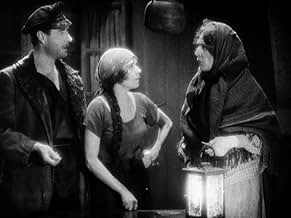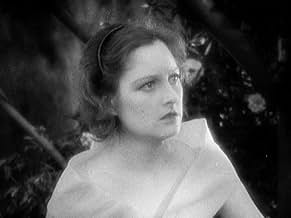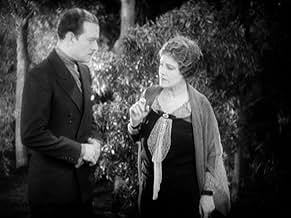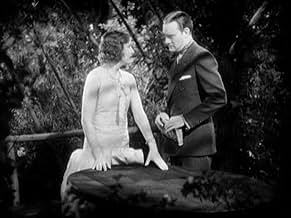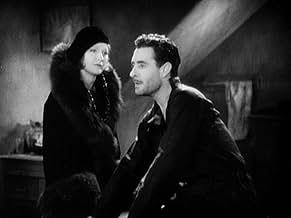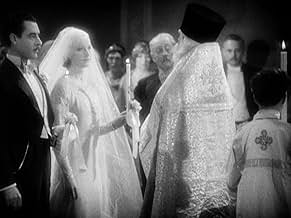Fedya vince Lisa lontano dal suo fidanzato, Victor Karenin.Fedya vince Lisa lontano dal suo fidanzato, Victor Karenin.Fedya vince Lisa lontano dal suo fidanzato, Victor Karenin.
- Regia
- Sceneggiatura
- Star
- Premi
- 1 vittoria in totale
George Spelvin
- Magistrate
- (scene tagliate)
Richard Alexander
- Policeman
- (as Dick Alexander)
Charles Quatermaine
- Artimiev
- (scene tagliate)
Agostino Borgato
- Petushkov
- (scene tagliate)
Max Barwyn
- Trial Attendee
- (non citato nei titoli originali)
Stanley Blystone
- Undetermined Secondary Role
- (non citato nei titoli originali)
Geraldine Dvorak
- Anna Pavlovna's Maid
- (non citato nei titoli originali)
Recensioni in evidenza
An irresponsible gambler, having destroyed the happiness of those dearest to him, seeks REDEMPTION in suicide.
According to cinematic legend, all the talkie MGM films starring John Gilbert were dreadful - the result of a bitter hatred between Gilbert (the highest paid star in Hollywood, with a $1.5 million contract) & studio boss Louis B. Mayer. A determination on Gilbert's part to fulfill the contract, and a campaign instituted by Mayer to destroy Gilbert's career including spreading the rumor that Gilbert's voice was 'high & feminine', culminated in several unwatchable movies.
Not entirely true. The Studio had a huge financial investment in Jack Gilbert and was not going to completely cut its own throat by showcasing him in nothing but dreck. However, of the 8 MGM talkies in which he appeared as solo star (1929 - HIS GLORIOUS NIGHT; 1930 - REDEMPTION; WAY FOR A SAILOR; 1931 - GENTLEMAN'S FATE; THE PHANTOM OF Paris; WEST OF Broadway; 1932 - DOWNSTAIRS; 1933 - FAST WORKERS) most were certainly rather ghastly.
Although released after HIS GLORIOUS NIGHT, REDEMPTION was Gilbert's first foray into talking pictures. He hated the film and begged the Studio not to release it, fearful of what it might do to his career. But release it they did, and coming after the atrocious reception of HIS GLORIOUS NIGHT, Gilbert's career was struck a mortal blow.
One of the main problems with REDEMPTION, aside from the turgid dialogue and dreadful editing, is that it is a depressing story, with wretchedly unhappy characters. This may have worked fine in Tolstoy's original novel (The Living Corpse), but for the cinema, especially dealing with the new difficulties engendered by sound, a morbid story line was deadly. To make matters worse, Gilbert tended to deliver his lines in a sing-song manner, which made them sound silly. Only in the Easter Monday Night scene does he get a few moments to show what he was capable of artistically.
The rest of the cast, Conrad Nagel, Eleanor Boardman & Renée Adorée, are also defeated by the film, although they speak their lines more naturalistically than Gilbert. The existing print of the film seems about 10 minutes short and what appears to be missing, based on Gilbert's final lines, would be the death of Adorée's character. (Movie mavens will recognize, in an uncredited role, silent comic Mack Swain playing an unfriendly Russian judge.)
Finally, about The Voice. There was nothing at all strange or unnaturally high about Gilbert's voice. As a matter of fact, it was of medium range & rather cultured & refined. Which was the crux of the problem, of course. While it is possible that no voice could have ever matched the perfect one viewers heard in their minds while watching his strong, virile silent roles, the reality was very different from what they wanted to hear (imagine Robert Montgomery's voice coming out of Clark Gable's mouth.) Gilbert was doomed from his first scene in his debut talkie; his war with Mayer only intensified the agony. John Gilbert would die in 1936, forgotten by most of his former fans, at the age of only 36.
According to cinematic legend, all the talkie MGM films starring John Gilbert were dreadful - the result of a bitter hatred between Gilbert (the highest paid star in Hollywood, with a $1.5 million contract) & studio boss Louis B. Mayer. A determination on Gilbert's part to fulfill the contract, and a campaign instituted by Mayer to destroy Gilbert's career including spreading the rumor that Gilbert's voice was 'high & feminine', culminated in several unwatchable movies.
Not entirely true. The Studio had a huge financial investment in Jack Gilbert and was not going to completely cut its own throat by showcasing him in nothing but dreck. However, of the 8 MGM talkies in which he appeared as solo star (1929 - HIS GLORIOUS NIGHT; 1930 - REDEMPTION; WAY FOR A SAILOR; 1931 - GENTLEMAN'S FATE; THE PHANTOM OF Paris; WEST OF Broadway; 1932 - DOWNSTAIRS; 1933 - FAST WORKERS) most were certainly rather ghastly.
Although released after HIS GLORIOUS NIGHT, REDEMPTION was Gilbert's first foray into talking pictures. He hated the film and begged the Studio not to release it, fearful of what it might do to his career. But release it they did, and coming after the atrocious reception of HIS GLORIOUS NIGHT, Gilbert's career was struck a mortal blow.
One of the main problems with REDEMPTION, aside from the turgid dialogue and dreadful editing, is that it is a depressing story, with wretchedly unhappy characters. This may have worked fine in Tolstoy's original novel (The Living Corpse), but for the cinema, especially dealing with the new difficulties engendered by sound, a morbid story line was deadly. To make matters worse, Gilbert tended to deliver his lines in a sing-song manner, which made them sound silly. Only in the Easter Monday Night scene does he get a few moments to show what he was capable of artistically.
The rest of the cast, Conrad Nagel, Eleanor Boardman & Renée Adorée, are also defeated by the film, although they speak their lines more naturalistically than Gilbert. The existing print of the film seems about 10 minutes short and what appears to be missing, based on Gilbert's final lines, would be the death of Adorée's character. (Movie mavens will recognize, in an uncredited role, silent comic Mack Swain playing an unfriendly Russian judge.)
Finally, about The Voice. There was nothing at all strange or unnaturally high about Gilbert's voice. As a matter of fact, it was of medium range & rather cultured & refined. Which was the crux of the problem, of course. While it is possible that no voice could have ever matched the perfect one viewers heard in their minds while watching his strong, virile silent roles, the reality was very different from what they wanted to hear (imagine Robert Montgomery's voice coming out of Clark Gable's mouth.) Gilbert was doomed from his first scene in his debut talkie; his war with Mayer only intensified the agony. John Gilbert would die in 1936, forgotten by most of his former fans, at the age of only 36.
"Redemption" is well-paced, competently directed, attractively cast, makes good use of off-screen sound (rain, birds, clock, singing, etc.) - but the story itself is slight and trite; one can only imagine that the Leo Tolstoy play on which it was based had more substance to it. Watchable. ** out of 4.
Interesting film but not very good.
Infamous as John Gilbert's first talkie, though it was released by MGM after HIS GLORIOUS NIGHT had already bombed. Oh that LB Mayer.....
The copy I have was taped off TNT (tv station) and was trimmed by maybe 10 minutes to fit a timeslot. In any case, the story is not very good, one about brooding Russians and fiery Gypsies and love gone bad.
Gilbert is, however, very good as the failing Russian who can't decline booze or gambling. Eleanor Boardman is his faithful wife. Conrad Nagel is friend. Renee Adoree is a fiery Gypsy. Mack Swain plays a Russian judge and Sidney Bracey a philosophic waiter.
It seems badly edited and/or directed but the story is so dark and gloomy it hardly matters. The 4 stars are all pretty good in this early talkie, and Gilbert, in fine voice, has a few very good scenes that almost salvage the film.
Again it's odd that contemporary reviews of this film and HIS GLORIOUS NIGHT never mentioned Gilbert as having a bad voice, thin, effeminate, high, or anything else.... The films were just clunkers.....
Infamous as John Gilbert's first talkie, though it was released by MGM after HIS GLORIOUS NIGHT had already bombed. Oh that LB Mayer.....
The copy I have was taped off TNT (tv station) and was trimmed by maybe 10 minutes to fit a timeslot. In any case, the story is not very good, one about brooding Russians and fiery Gypsies and love gone bad.
Gilbert is, however, very good as the failing Russian who can't decline booze or gambling. Eleanor Boardman is his faithful wife. Conrad Nagel is friend. Renee Adoree is a fiery Gypsy. Mack Swain plays a Russian judge and Sidney Bracey a philosophic waiter.
It seems badly edited and/or directed but the story is so dark and gloomy it hardly matters. The 4 stars are all pretty good in this early talkie, and Gilbert, in fine voice, has a few very good scenes that almost salvage the film.
Again it's odd that contemporary reviews of this film and HIS GLORIOUS NIGHT never mentioned Gilbert as having a bad voice, thin, effeminate, high, or anything else.... The films were just clunkers.....
John Gilbert's was in fine voice in Redemption, although the film itself was badly edited (particularly the opening scene of gypsies in a park) and more than a little morbid. It seems that MGM tries to undermine Gilbert by spreading negative rumors about his voice in hopes of getting out of their contract with them, which bound them to pay him ten (10) times per picture what he earned when Greta Garbo insisted that he be her co-star, after his MGM contract had ended, in 1933's Queen Christina.
And if anyone doubts that Louis B. Mayer had it in for Gilbert, just listen to the interview on this subject given years later by Hollywood Director King Vidor. And note that rather than putting both Garbo's and Gilbert's names above the title in Queen Christina, as had been done with their successful silent films, only Garbo was listed above the title. And their publicity for the film (eg its Posters) did not even list Gilbert among the cast.
In fact, Gilbert had a fine and interesting voice, which was perhaps too elegant and less casual than it might have been. His voice was deeper and more resonant than a number of the stars making their first sound films in 1929-30, eg. Douglas Fairbanks Sr. and Jr. and especially Charles Farrell, who truly had a high tenor voice, but nonetheless acted in Hollywood into the 1950s. Most comparable was Robert Montgomery's voice, which although a bit higher than Gilbert's was more casual.
Happily for us, John Gilbert made a total of 11 sound films and I particularly recommend The Phantom of Paris (1931), Downstairs (1932), Queen Christina (1933) and The Captain Hates the Sea (1934).
A good sound film for its time that should be absolutely fascinating to any silent-film buff. Look at the cast list and the director's name. This film positively teems with former silent-film *STARS* at the onset of sound productions.
Perhaps not surprisingly, I feel this film would have been better if produced silent. It certainly has the silent "look" and a silent "pace" to it.
While I think all the actors' voices sound good (even Gilbert's), their line deliveries are occasionally suspect--but not too bad.
All in all a decent (not excellent) early sound picture that should hold silent-film fans rapt till the end credits.
Perhaps not surprisingly, I feel this film would have been better if produced silent. It certainly has the silent "look" and a silent "pace" to it.
While I think all the actors' voices sound good (even Gilbert's), their line deliveries are occasionally suspect--but not too bad.
All in all a decent (not excellent) early sound picture that should hold silent-film fans rapt till the end credits.
Lo sapevi?
- QuizJohn Gilbert loathed the film and begged for it not to be released. His wishes were not granted. Instead the film was shelved and was released after Ladro d'amore (1929), which had been filmed after "Redemption" was already finished.
- ConnessioniFeatured in Hollywood (1980)
I più visti
Accedi per valutare e creare un elenco di titoli salvati per ottenere consigli personalizzati
Dettagli
- Tempo di esecuzione
- 1h 15min(75 min)
- Colore
- Mix di suoni
Contribuisci a questa pagina
Suggerisci una modifica o aggiungi i contenuti mancanti

